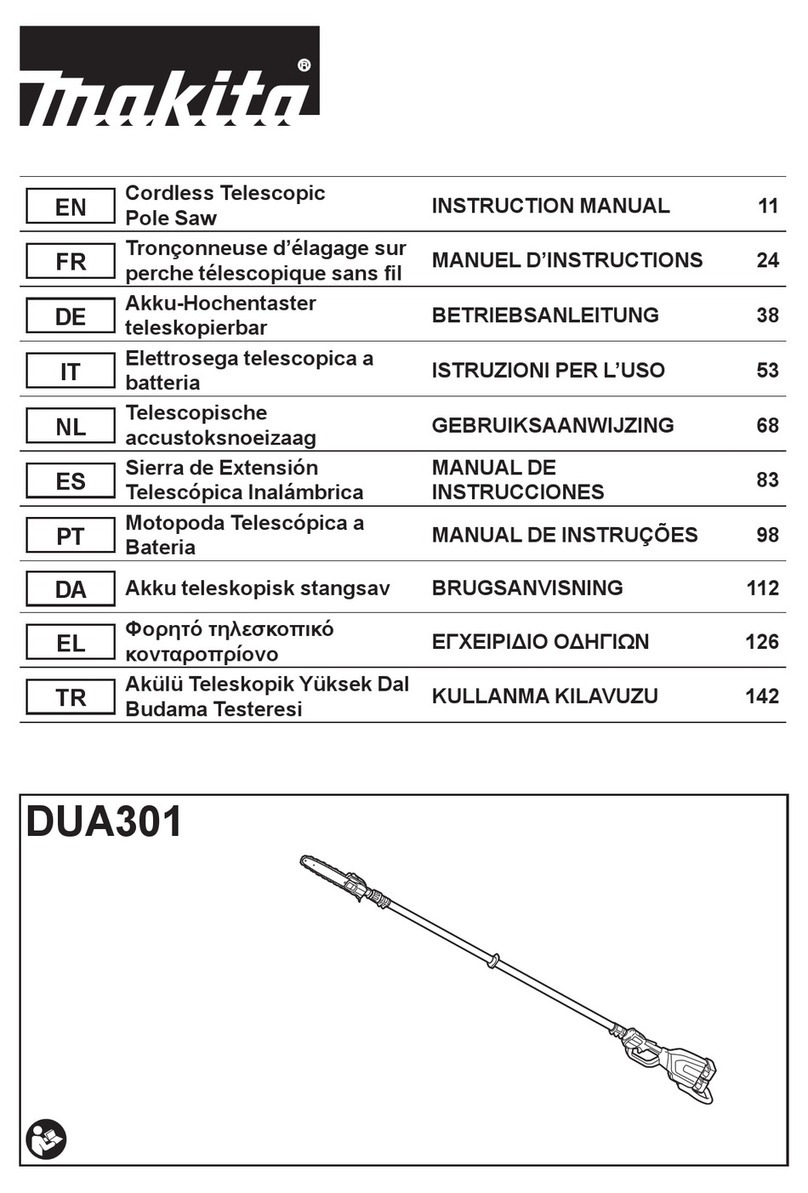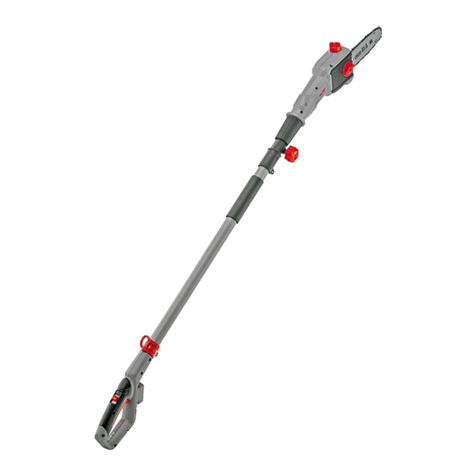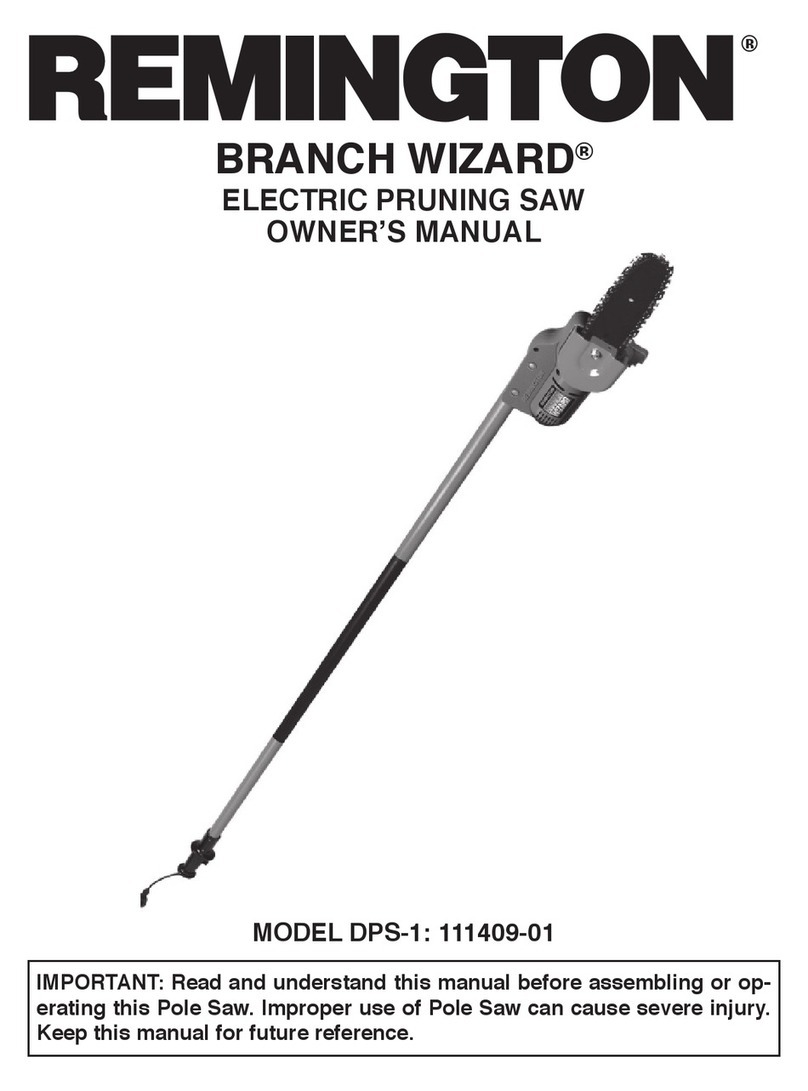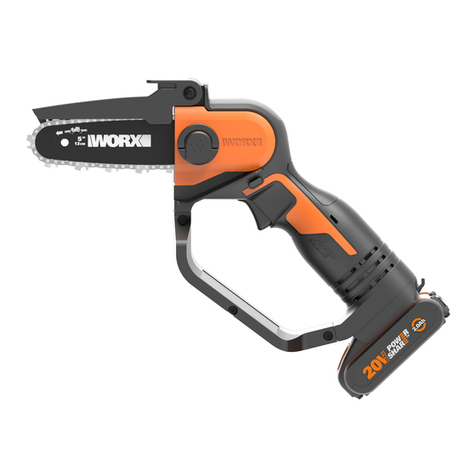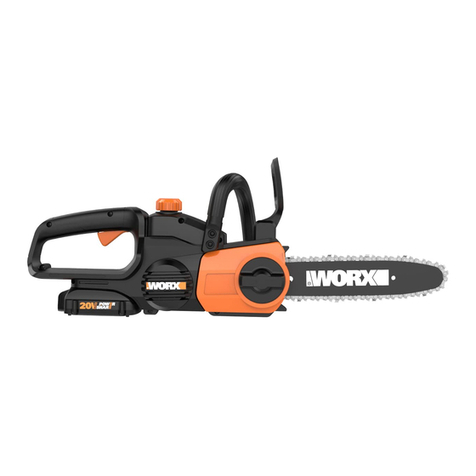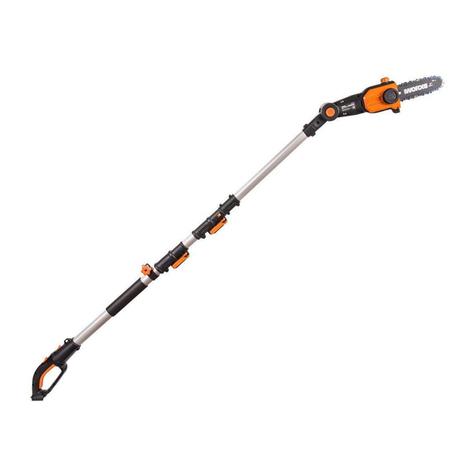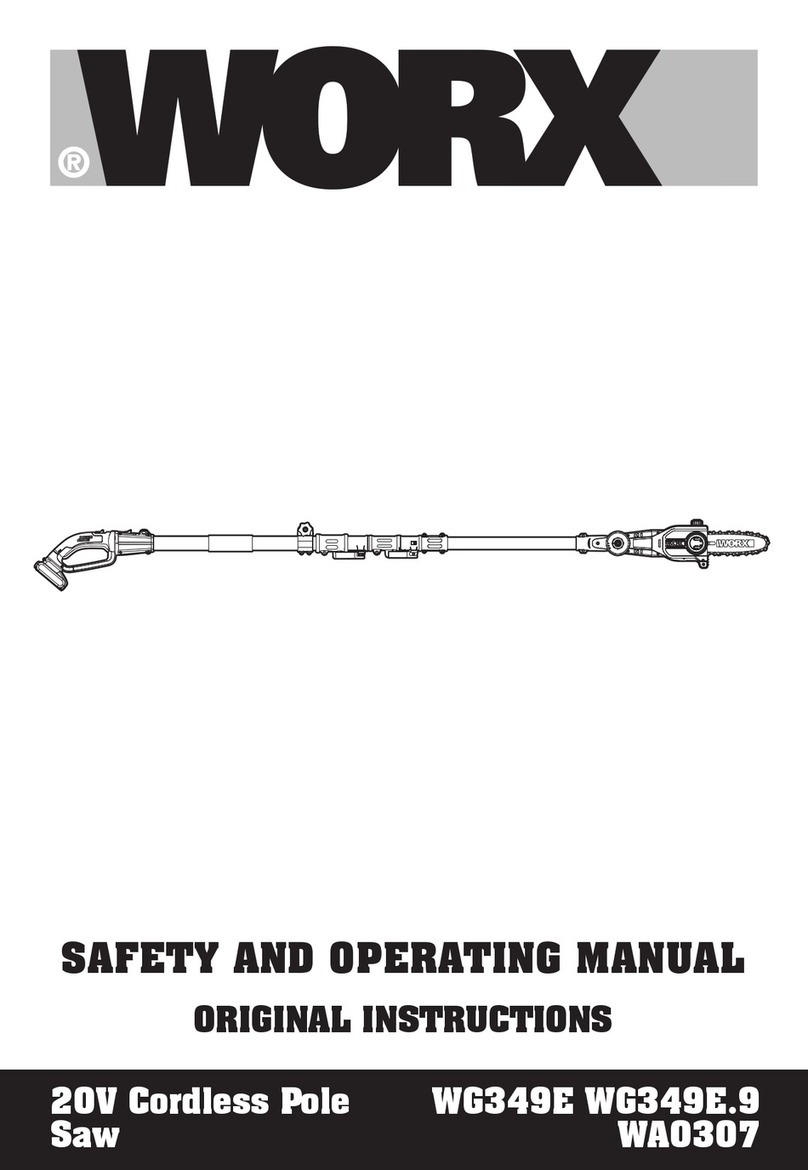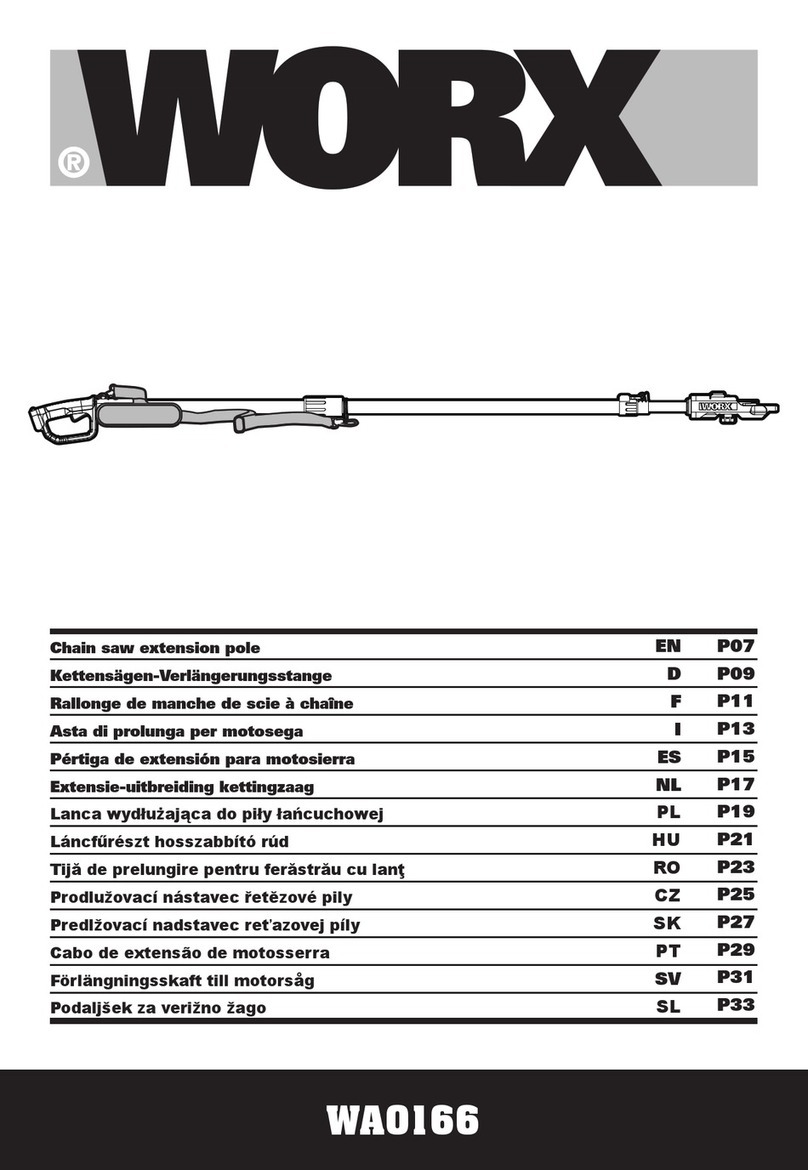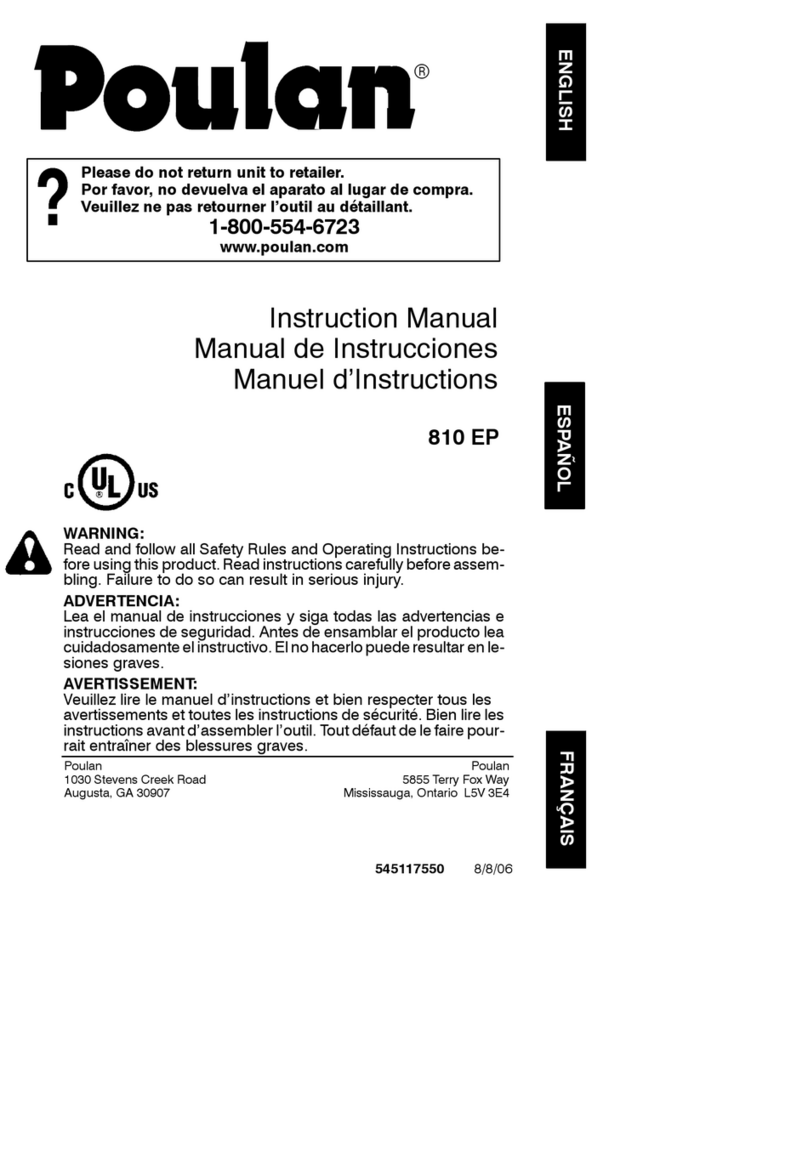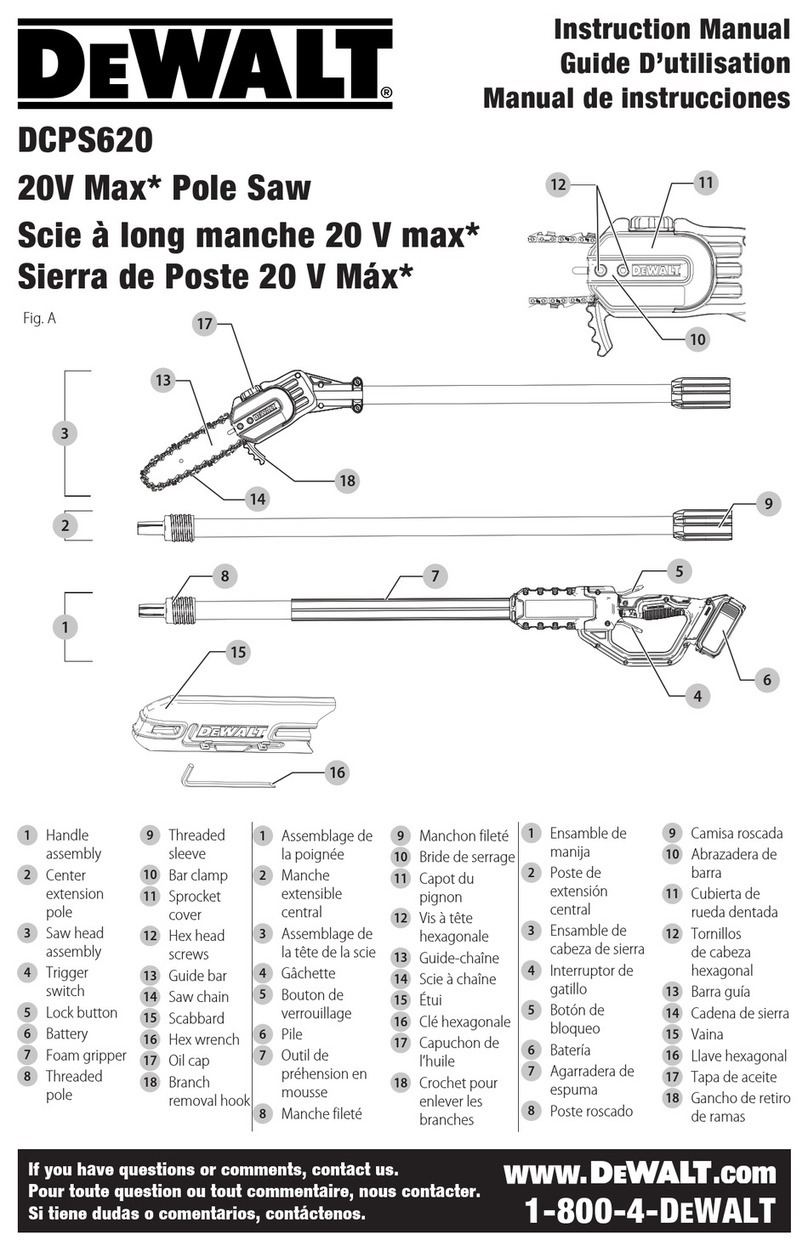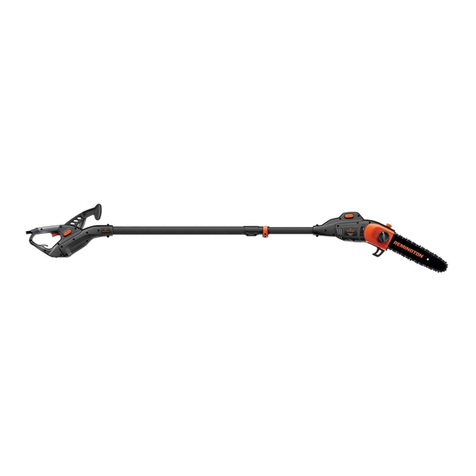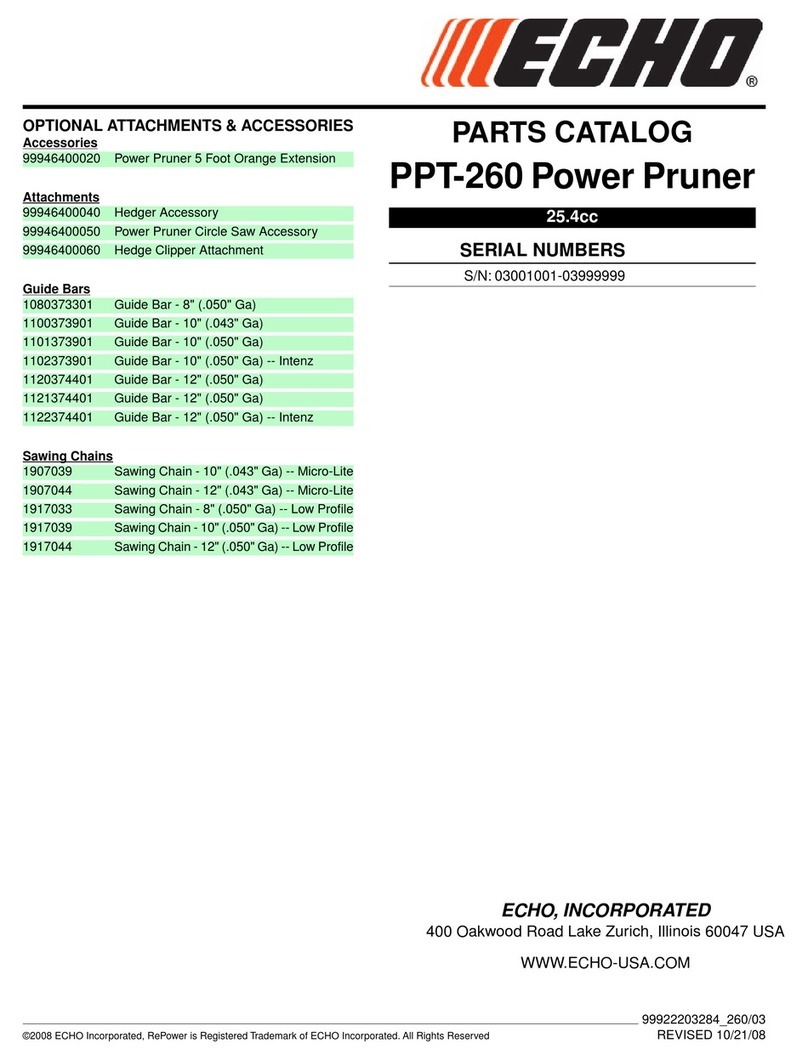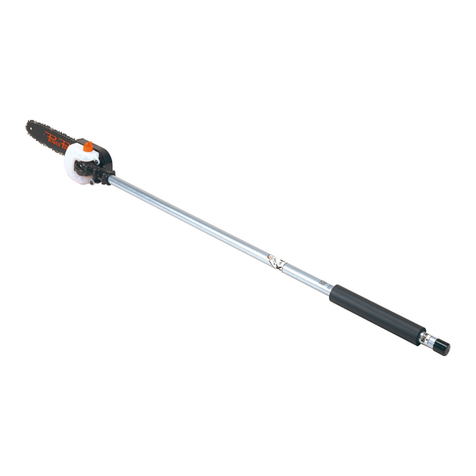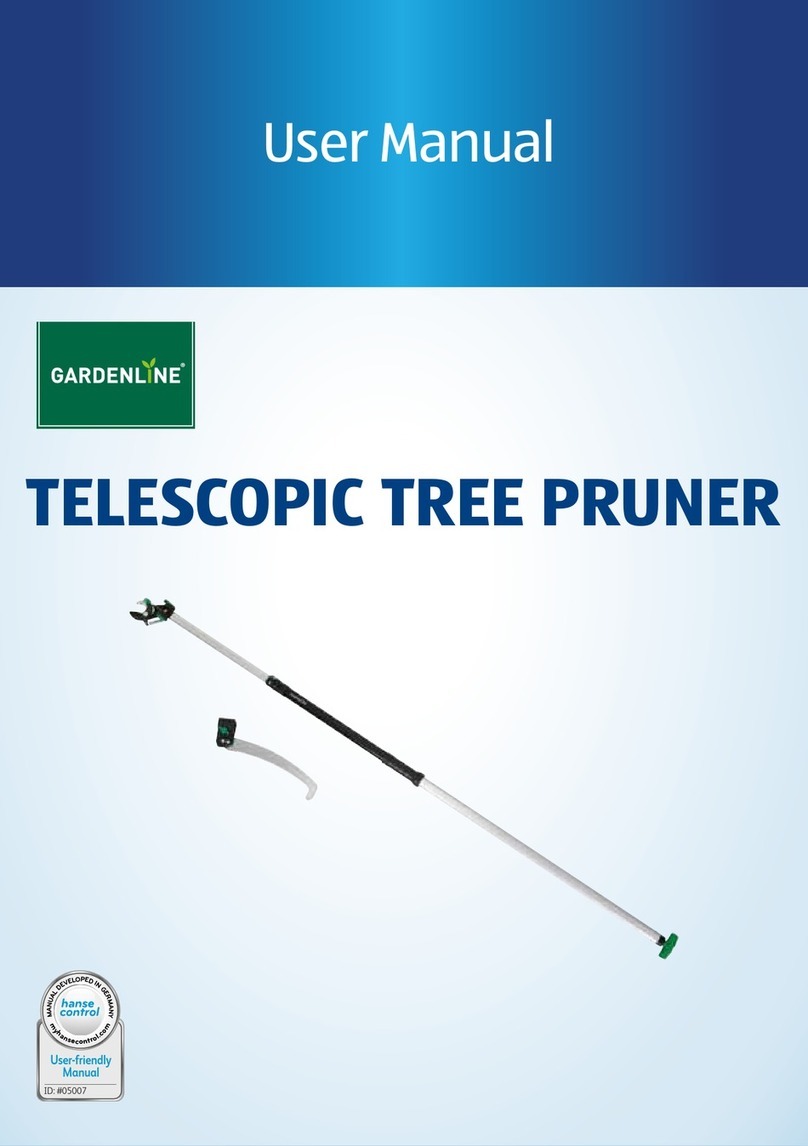
Cordless Chainsaw EN
2
PRODUCT SAFETY
WARNING: Some dust created by
power sanding, sawing, grinding, drilling
and other construction activities contains
chemicals known to the state of California
to cause cancer, birth defects or other
reproductive harm. Some examples of these
chemicals are:
• Lead from lead-based paints;
• Crystalline silica from bricks and cement
and other masonry products and
• Arsenic and chromium from chemically-
treated lumber.
Your risk from these exposures varies,
depending on how often you do this type
of work. To reduce your exposure to these
chemical: work in a well ventilated area, and
work with approved safety equipment, such as
those dust masks that are specially designed
to filter out microscopic particles.
WARNING: This product can expose you
to chemicals including lead and Di(2-
ethylhexyl)phthalate (DEHP) which are known
to the State of California to cause cancer and
birth defects or other reproductive harm. For
more information go to www.P65Warnings.
ca.gov
IMPORTANT SAFETY
INSTRUCTIONS
WARNING: Read all safety warnings
and instructions. Failure to follow the
warnings and instructions may result in
electric shock, fire and/or serious injury.
FOR ALL APPLIANCES:
1) Avoid Dangerous Environment - Don’t use
appliances in damp or wet locations.
2) Don’t Use In Rain.
3) Keep Children Away - All visitors should be kept at
a distance from work area.
4) Dress Properly - Do not wear loose clothing or
jewelry. They can be caught in moving parts.
Use of rubber gloves and substantial footwear
is recommended when working outdoors. Wear
protective hair covering to contain long hair.
5) Use Safety Glasses - Always use face or dust mask
if operation is dusty.
6) Use Right Appliance - Do not use appliance for any
job except that for which it is intended.
7) Don’t Force Appliance - It will do the job better and
with less likelihood of a risk of injury at the rate for
which it was designed.
8) Don’t Overreach - Keep proper footing and balance
at all times.
9) Stay Alert - Watch what you are doing. Use
common sense. Do not operate appliance when
you are tired.
10) Store Idle Appliances Indoors - When not in use,
appliances should be stored indoors in dry, and
high or locked-up place - out of reach of children.
11) Maintain Appliance With Care - Keep cutting
edge sharp and clean for best performance and
to reduce the risk of injury. Follow instructions
for lubricating and changing accessories. Keep
handles dry, clean, and free from oil and grease.
12) Check Damaged Parts - Before further use of the
appliance, a guard or other part that is damaged
should be carefully checked to determine that it will
operate properly and perform its intended function.
Check for alignment of moving parts, binding of
moving parts, breakage of parts, mounting, and
any other condition that may affect its operation.
A guard or other part that is damaged should be
properly repaired or replaced by an authorized
service center unless indicated elsewhere in this
manual.
FOR ALL BATTERY – OPERATED GARDENING
APPLIANCES:
1. Prevent unintentional starting. Ensure the switch
is in the off-position before connecting to battery
pack, picking up or carrying the appliance. Carrying
the appliance with your finger on the switch or
energizing appliance that have the switch on
invites accidents.
2. Disconnect the battery pack from the appliance
before making any adjustments, changing
accessories, or storing appliance. Such preventive
safety measures reduce the risk of starting the
appliance accidentally.
3. Recharge only with the charger specified by the
manufacturer .A charger that is suitable for one
type of battery pack may create a risk of fire when
used with another battery pack.
4. Use appliances only with specifically designated
battery packs. Use of any other battery packs may
create a risk of injury and fire.
5. When battery pack is not in use, keep it away from
other metal objects, like paper clips, coins, keys,
nails, screws or other small metal objects, that can
make a connection from one terminal to another.
Shorting the battery terminals together may cause
burns or a fire.
6. Under abusive conditions, liquid may be ejected
from the battery; avoid contact. If contact
accidentally occurs, flush with water. If liquid
contacts eyes, additionally seek medical help.
Liquid ejected from the battery may cause irritation
or burns.
7. Do not use a battery pack or appliance that is
damaged or modified. Damaged or modified
batteries may exhibit unpredictable behavior
resulting in fire, explosion or risk of injury.
8. Do not expose a battery pack or appliance to
fire or excessive temperature. Exposure to fire
or temperature above 265°F (130°C) may cause
explosion.
9. Follow all charging instructions and do not charge
the battery pack or appliance outside of the
temperature range specified in the instructions.
Charging improperly or at temperatures outside of



